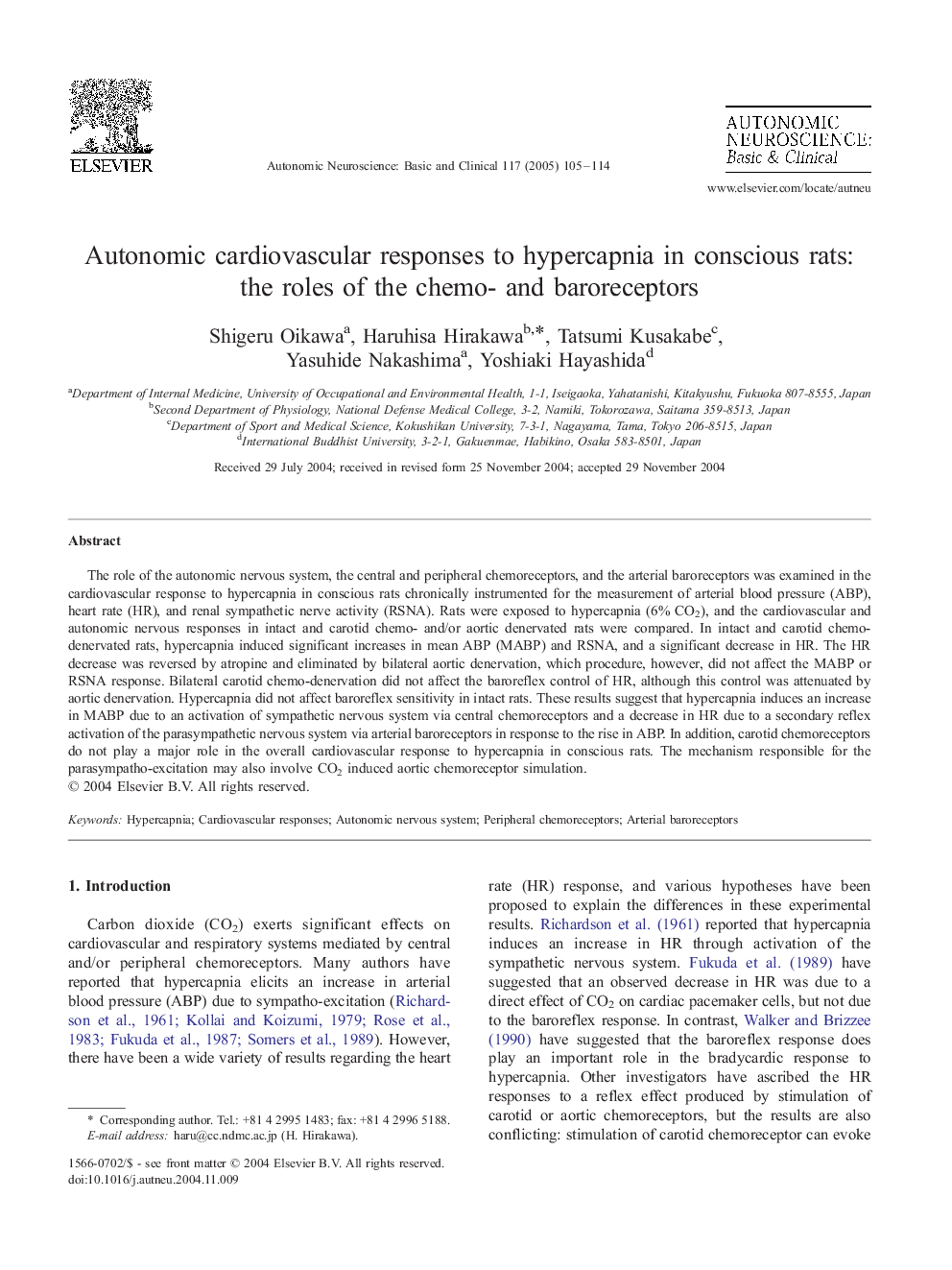| Article ID | Journal | Published Year | Pages | File Type |
|---|---|---|---|---|
| 9186553 | Autonomic Neuroscience | 2005 | 10 Pages |
Abstract
The role of the autonomic nervous system, the central and peripheral chemoreceptors, and the arterial baroreceptors was examined in the cardiovascular response to hypercapnia in conscious rats chronically instrumented for the measurement of arterial blood pressure (ABP), heart rate (HR), and renal sympathetic nerve activity (RSNA). Rats were exposed to hypercapnia (6% CO2), and the cardiovascular and autonomic nervous responses in intact and carotid chemo- and/or aortic denervated rats were compared. In intact and carotid chemo-denervated rats, hypercapnia induced significant increases in mean ABP (MABP) and RSNA, and a significant decrease in HR. The HR decrease was reversed by atropine and eliminated by bilateral aortic denervation, which procedure, however, did not affect the MABP or RSNA response. Bilateral carotid chemo-denervation did not affect the baroreflex control of HR, although this control was attenuated by aortic denervation. Hypercapnia did not affect baroreflex sensitivity in intact rats. These results suggest that hypercapnia induces an increase in MABP due to an activation of sympathetic nervous system via central chemoreceptors and a decrease in HR due to a secondary reflex activation of the parasympathetic nervous system via arterial baroreceptors in response to the rise in ABP. In addition, carotid chemoreceptors do not play a major role in the overall cardiovascular response to hypercapnia in conscious rats. The mechanism responsible for the parasympatho-excitation may also involve CO2 induced aortic chemoreceptor simulation.
Keywords
Related Topics
Life Sciences
Neuroscience
Cellular and Molecular Neuroscience
Authors
Shigeru Oikawa, Haruhisa Hirakawa, Tatsumi Kusakabe, Yasuhide Nakashima, Yoshiaki Hayashida,
